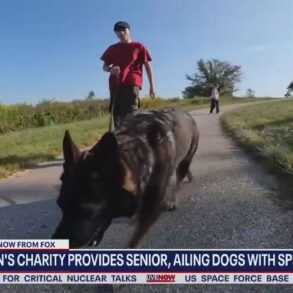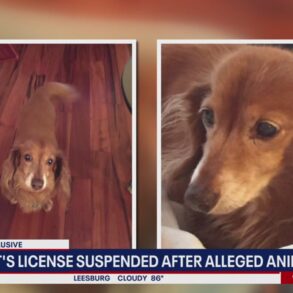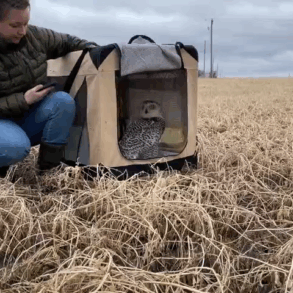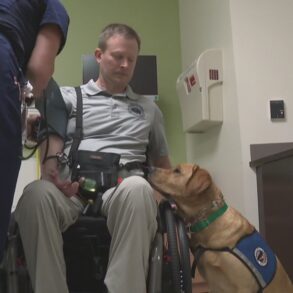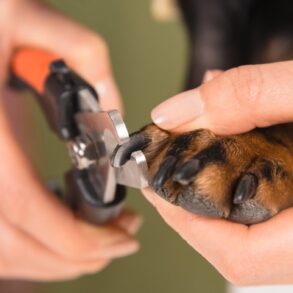COLERAIN, Ohio — In the wake of tragic dog attacks that have left victims scarred for life, residents of Ohio are calling for stronger state laws to protect the community from dangerous canines.
Carrie Davis, whose daughter Emily Rentschler suffered severe injuries in a brutal attack earlier this month in Colerain, shared her heart-wrenching plea.
“My daughter may not have use of her hand for the rest of her life. My grandchildren witnessed their mother almost being killed,” said Davis.
Rentschler reflected on her traumatic experience with WCPO back in March.
“I can’t believe I didn’t die,” Rentschler said.
After being attacked by two dogs in her neighborhood, the dogs involved were allowed to remain in the area for days, prompting residents to demand immediate action from officials.
Ed Brutz, another Colerain resident who was also attacked around the same time while gardening, echoed this urgency.
“Swiftly, quickly now, don’t wait, put it on the desk, and let’s go to recess,” Brutz told WCPO.
Brutz described the alarming encounter with three large dogs that rushed into his backyard, leaving him injured and questioning what measures could be implemented to prevent such attacks.
See more about Avery’s Law reforms in the video player below:
According to Beth Ward, Hamilton County’s Chief Dog Warden, the current state laws are outdated and need reform.
A pivotal development in the fight for stronger regulations is House Bill 240, named after Avery Russell, a 12-year-old boy who was attacked by two pit bulls last summer in the Columbus area.
Russell attended a recent legislative session to urge lawmakers to consider the community’s safety, particularly the safety of vulnerable groups such as children and older adults.
Proposed measures in House Bill 240 include increased jail time and fines for dog owners, mandatory incident reporting, and a requirement for those owning dogs deemed dangerous or vicious to carry at least $100,000 in liability insurance. Additionally, if passed, the bill would mandate euthanasia for dogs that cause serious injuries or fatalities—an update from the current Ohio law, which only calls for euthanasia after a second dog-related death.
Supporters of the bill, including Davis, are hopeful for its passage.
“I think the legislature has made a great step forward in protecting the residents!” Davis said.
However, some opponents raise concerns about the implications for dog owners, who might feel this indirectly punishes them for owning a specific type of dog.
“Too bad,” Davis responded firmly.” If you have not exercised the responsibility and the control of your animal that it got a hold of one person unprovoked, then you have forfeited your right to have a say in this!”
As community members unite to advocate for these changes, the fate of House Bill 240 remains uncertain, but the urgency for action is clear. The wounds of recent dog attacks leave lasting reminders of the need for effective legislation to protect not only victims but the broader community as well.
This post was originally published on this site be sure to check out more of their content.






